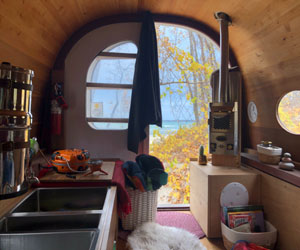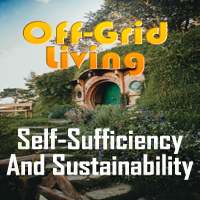


Creative Landscaping Ideas

Your outdoor space is an extension of your home, and landscaping plays a pivotal role in making it a place of beauty, relaxation, and recreation. Whether you have a sprawling backyard or a cozy balcony, there are landscaping ideas to suit every space and style. In this article, we'll explore creative landscaping ideas that can transform your outdoor area into a captivating haven.
1. Native Plant Gardens: One of the most eco-conscious landscaping ideas is to create a garden featuring native plants. Native plants are naturally adapted to the local climate and require less maintenance. They also support local wildlife and pollinators. A well-planned native plant garden can be both sustainable and visually stunning.
2. Xeriscaping: For areas with limited water resources, xeriscaping is the way to go. This landscaping approach focuses on drought-tolerant plants, efficient irrigation systems, and mulching to conserve water. The result is a low-maintenance garden that thrives in arid conditions.
3. Edible Landscaping: Why not turn your outdoor space into a source of fresh produce? Edible landscaping incorporates fruits, vegetables, and herbs into your garden design. Raised beds, vertical gardens, and fruit trees can create a beautiful and functional space that provides your family with fresh, homegrown produce.
4. Zen Gardens: Zen gardens are known for their minimalist and tranquil designs. These peaceful spaces often feature sand or gravel raked into patterns, along with carefully placed rocks and a few select plants. They provide a sense of serenity and are perfect for meditation or relaxation.
5. Cottage Gardens: Cottage gardens are characterized by their informal, abundant, and colorful arrangements. They typically include a mix of flowers, shrubs, and even some vegetables. The key is to create a slightly wild and romantic atmosphere, perfect for a more rustic and charming look.
6. Rock Gardens: If you have rocky or hilly terrain, consider creating a rock garden. These gardens use the natural features of the land, incorporating rocks, pebbles, and alpine plants. They provide a unique and visually appealing landscape.
7. Vertical Gardens: For small spaces or urban areas, vertical gardens are an excellent option. These gardens make use of walls, fences, or trellises to grow plants upwards, saving valuable ground space and adding a touch of greenery to urban environments.
8. Water Features: Ponds, fountains, and waterfalls can add an element of tranquility and elegance to your landscape. The soothing sound of water and the visual appeal of aquatic plants and fish can turn your outdoor space into a peaceful retreat.
9. Outdoor Living Spaces: Combine landscaping with functional living areas. Create outdoor kitchens, seating areas, fire pits, or pergolas to make your garden a true extension of your home. These spaces are perfect for entertaining and relaxation.
10. Lighting Design: Don't forget the importance of outdoor lighting. Well-placed lights can extend the usability of your outdoor space into the evening hours, create a magical atmosphere, and highlight key features in your landscape.
Landscaping offers endless possibilities for enhancing the beauty and functionality of your outdoor space. Whether you prefer a serene oasis, a productive garden, or an entertainment hub, there are landscaping ideas to suit your vision and make your outdoor area a true gem. Start planning and get ready to transform your outdoor space into a paradise of your own creation.
The Liberating Power Of Minimalism
 The modern consumerist culture often bombards us with messages that more is better, and that happiness can be found through the acquisition of material possessions. However, this mindset can lead to cluttered lives, financial strain, and a sense of emptiness. "Freedom from excess" challenges this narrative, offering a different perspective on what constitutes a fulfilling life.
The modern consumerist culture often bombards us with messages that more is better, and that happiness can be found through the acquisition of material possessions. However, this mindset can lead to cluttered lives, financial strain, and a sense of emptiness. "Freedom from excess" challenges this narrative, offering a different perspective on what constitutes a fulfilling life.
Here are some key aspects of this philosophy:
Minimalist Living: At its core, "freedom from excess" aligns with minimalist living. It encourages individuals to declutter their living spaces, reduce their material possessions, and focus on the essentials that truly add value to their lives. Minimalist living emphasizes quality over quantity and promotes the idea that less can be more.
Financial Freedom: A focus on "freedom from excess" includes mindful spending and the avoidance of unnecessary debt. By living within one's means and reducing unnecessary expenses, individuals can experience financial freedom, reduce stress, and achieve greater control over their financial future.


Embracing Minimalism For A More Fulfilling Life
 3. Simplify Your Wardrobe
3. Simplify Your Wardrobe
A minimalist wardrobe typically consists of versatile, timeless pieces that can be mixed and matched. This not only makes getting dressed in the morning easier but also reduces the time and money spent on clothing. A smaller wardrobe can be more reflective of your personal style and eliminate the stress of decision fatigue.
4. Quality Over Quantity
In a world where we are often encouraged to buy more for less, minimalism emphasizes the importance of quality over quantity. Instead of opting for numerous inexpensive items, invest in high-quality products that are built to last. This not only reduces waste but also leads to a more cost-effective and satisfying life in the long run.
5. Mindful Consumption
Minimalism promotes mindful consumption. Before making a purchase, think about whether the item aligns with your values and needs. Consider whether it will enhance your life or merely contribute to clutter. Being mindful of what you bring into your life can lead to more intentional and fulfilling choices.
6. Reduced Environmental Impact
By living with less and consuming mindfully, minimalism can have a positive impact on the environment. Reducing waste, conserving resources, and making eco-friendly choices are intrinsic to this way of life, which ultimately contributes to a more sustainable planet.
7. Increased Time And Freedom
Living with less not only simplifies your surroundings but also frees up time and mental space.
Cleaning Your Home The Eco-Friendly Way
 Reduced Health Risks: Natural cleaning products are less likely to cause skin irritations, allergies, or other health problems associated with chemical exposure.
Reduced Health Risks: Natural cleaning products are less likely to cause skin irritations, allergies, or other health problems associated with chemical exposure.
Eco-Friendly: Natural cleaning solutions are gentle on the environment. They don't contribute to water pollution when washed down drains, and they reduce the production and disposal of harmful chemicals.
Versatility: Natural ingredients like vinegar, baking soda, and lemon juice can be used in a variety of cleaning tasks, reducing the need for multiple specialized cleaning products.
Common Natural Cleaning Solutions
Vinegar: White vinegar is a versatile natural cleaner that can be used to disinfect surfaces, remove stains, and even clean glass.
Baking Soda: Baking soda is an effective abrasive cleaner, perfect for scrubbing surfaces, deodorizing, and eliminating stains.
Lemon Juice: Lemon juice is a natural disinfectant that also leaves behind a fresh, citrus scent. It's great for cutting through grease and grime.
Essential Oils: Many essential oils, such as tea tree oil, lavender oil, and eucalyptus oil, have natural cleaning and disinfecting properties. They can be added to homemade cleaning solutions for added fragrance and antibacterial power.
Olive Oil: Olive oil can be used to clean and polish wooden surfaces and stainless steel appliances.
Methods Of Using Natural Cleaning Solutions
All-Purpose Cleaner: Create a basic all-purpose cleaner by mixing equal parts water and white vinegar. Add a few drops of your favorite essential oil for a pleasant scent.
The Key To Vitality
 The Significance Of Nutrient Absorption
The Significance Of Nutrient Absorption
Nutrient absorption is the bridge between the food we eat and the nutrients our bodies need to function optimally. It is crucial for maintaining health, supporting growth, and providing energy for daily activities. Without effective nutrient absorption, the body would struggle to obtain the vital elements required for various bodily functions.
The Digestive System's Role
The process of nutrient absorption begins in the digestive system, where food is broken down into smaller molecules through mechanical and chemical digestion. The small intestine, in particular, plays a central role in nutrient absorption. Its walls are lined with tiny finger-like projections called villi, which are covered in even smaller hair-like structures known as microvilli. These structures increase the surface area available for nutrient absorption.
Types Of Nutrients Absorbed
Several types of nutrients are absorbed during digestion, including:
Carbohydrates: Simple sugars like glucose are absorbed directly into the bloodstream.
The Power Of Smart Home Upgrades
 One of the primary advantages of smart home upgrades is the convenience they bring to our daily lives. Imagine being able to control your lights, thermostat, and even your coffee maker with a simple voice command or a tap on your smartphone. With the help of devices like smart speakers and home automation systems, you can create a truly interconnected living space. Adjusting your home's settings to suit your preferences has never been easier, making everyday tasks more efficient and enjoyable.
One of the primary advantages of smart home upgrades is the convenience they bring to our daily lives. Imagine being able to control your lights, thermostat, and even your coffee maker with a simple voice command or a tap on your smartphone. With the help of devices like smart speakers and home automation systems, you can create a truly interconnected living space. Adjusting your home's settings to suit your preferences has never been easier, making everyday tasks more efficient and enjoyable.
Security And Peace Of Mind
Smart home security is another major draw for homeowners. Advanced security systems equipped with cameras, motion sensors, and doorbell cameras provide real-time monitoring and alerts. This means you can keep a watchful eye on your property, whether you're at home or miles away. Smart locks also add an extra layer of security, allowing you to control access remotely and even provide temporary digital keys to guests.
Energy Efficiency
Smart home upgrades can significantly contribute to reducing your energy consumption and environmental footprint. Smart thermostats, for instance, can create personalized heating and cooling schedules that adapt to your daily routines, resulting in lower energy bills. Moreover, you can monitor and control your energy usage with the help of energy management systems, which offer insights into where and how you can save energy.
Customized Entertainment
Entertainment systems have also undergone a transformation with smart home upgrades. With a single remote control or voice command, you can manage your audio and video equipment, from smart TVs and streaming devices to home theater systems. Integration with virtual assistants like Alexa or Google Assistant allows you to effortlessly switch between your favorite movies, music, and more.